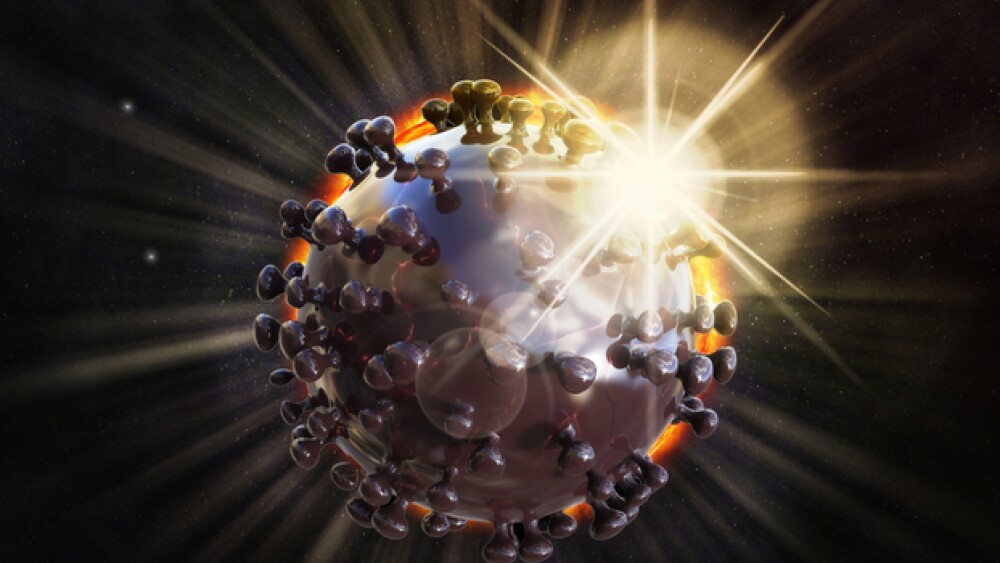The amount of scientific information unearthed about SARS-CoV-2, the virus that causes COVID-19, in only six months is unprecedented. The speed is remarkable, although much of it will still need to be confirmed over time with more careful study. Still, each day presents new data with a glimmer of hope. Here’s a look at some recent findings.
The amount of scientific information unearthed about SARS-CoV-2, the virus that causes COVID-19, in only six months is unprecedented. The speed is remarkable, although much of it will still need to be confirmed over time with more careful study. Still, each day presents new data with a glimmer of hope. Here’s a look at some recent findings.
Therapeutic Antibodies from SARS Block COVID-19
A peer-reviewed paper published in May in Nature found that antibodies from patients who survived SARS infections, the novel coronavirus that emerged almost 20 years ago, can block SARS-CoV-2. An international team that included researchers from San Francisco’s Vir Biotechnology and the University of Washington ran the research. Their work is related to an area gaining a lot of interest against COVID-19, identifying therapeutic antibodies against the virus. For example, earlier this week, Eli Lilly said it believed it might have therapeutic antibodies available by September.
ad
The research group indicated they were surprised by the potency of the antibody they discovered. David Veesler, senior author of the paper and a virologist at the University of Washington who studies SARS, said, “Looking for effective antibodies is like looking for a needle in a haystack. So this was very, very exciting because this antibody has the potential to have a high public health impact.”
Johns Hopkins Studying Convalescent Antibodies Immediately After Exposure
Convalescent plasma, which is to say, plasma taken from patients who recovered from COVID-19, is being investigated as a therapeutic. It has been tested in more than 20,000 people in the U.S., and to date, the results appear inconclusive, although a study out of New York suggested there might be some benefit.
“We have glimmers of hope,” said Shmuel Shoham of Johns Hopkins University.
Shoham is launching a national study to determine if people who had a high-risk exposure were given convalescent plasma immediately after exposure, would it prevent the disease. To do so, Hopkins and 15 other locations are recruiting health workers, spouses of COVID-19 patients and residents of nursing homes where someone got the disease and testing to determine if convalescent plasma will help. The study will take 150 volunteers and randomly assign them to either receive plasma from COVID-19 survivors or regular plasma, like that used daily in hospitals that were accumulated and frozen prior to the pandemic.
Can TB and Polio Vaccines Help Protect Against COVID-19?
While there are, according to the World Health Organization, more than 130 attempts to develop a COVID-19 vaccine worldwide, a couple of groups are looking at older vaccines that might be effective. One is BCG (bacillus Calmette-Guerin), which is a tuberculosis vaccine that has been in use for almost a hundred years.
“This is the only vaccine in the world that can be given to combat COVID-19 right now,” said Jeffrey D. Cirillo, professor of microbial pathogenesis and immunology at Texas A&M Health Science Center. It has already been approved for use by the U.S. Food and Drug Administration (FDA) and has a long record of safe use.
They don’t necessarily believe it will totally prevent COVID-19, but may potentially decrease the severity and prepare the innate immune system to battle the virus for a period of time. The BCG vaccine provides about 70-80% effectiveness against the most severe type of TB, and isn’t considered all that effective against the deadliest form of TB. But, in countries that still routinely use the vaccine, there have been lower rates of COVID-19. The vaccine, which uses a weakened bacterium, appears to boost the immune system. For example, Pakistan, which widely doses with BCG, had had only 2,255 COVID-19 deaths, which has a population of 212 million, compared to the U.S., a population of 330 million, and has had more than 112,000 deaths.
“It’s not like they’re not getting the infection,” said Azra Raza, professor of medicine at Columbia University Medical Center. “The rate [of positive infections] is high. But they’re just not dying. It is raging through, but they’re not dying of it.”
There are inconsistencies with the theory, because some countries that broadly use BCG, such as Brazil, have a high death rate. And an Israeli study has been inconclusive.
Research is also being conducted on whether the oral polio vaccine might help slow infections of COVID-10. Konstantin Chumakov, associate director of research at the FDA’s Office of Vaccines Research and Review, along with Robert Gallo, an HIV researcher and director of the Institute of Human Virology at the University of Maryland School of Medicine, are working to raise funding to conduct a study on the polio vaccine against COVID-19.





